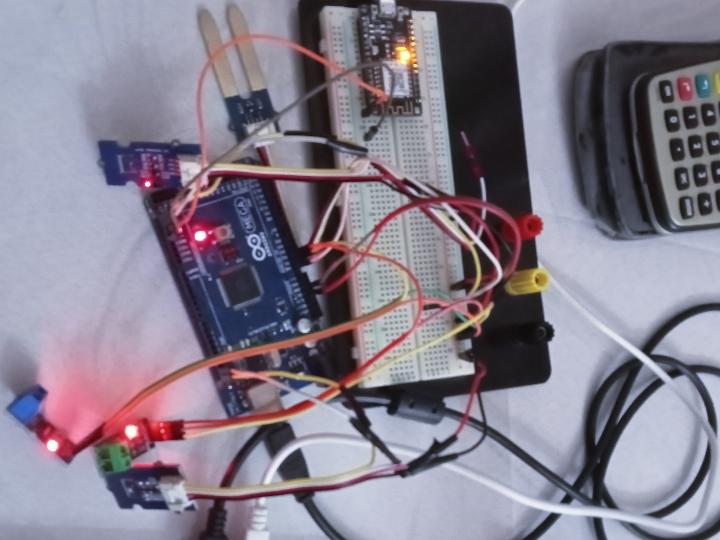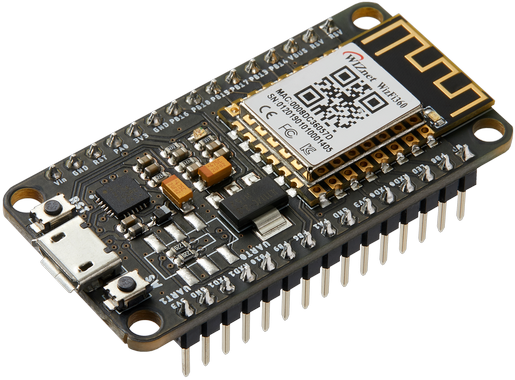Carbone footprint accounting on holistique crops
The proposed GHG sensor is a diagnostic tool to help traditional crops adopt the best agronomical practices for managing carbon efficiency.

ACS712 - ACS712 Current Sensor
x 2
ACS712 Current sensor
Low incomes, inefficient practices, and limited access to markets and information make it difficult for rural economies and smallholder communities to sustain production. Our proposed IoT model aims to implement sustainable optimized agroecosystem management to address minor crop issues. Based on innovative WIZFI360 Technologies the main goals focus on agroecological greenhouse gases GHG and carbon management at the local level. in addition to other objectives such as power management and optimized irrigation for water management.
We created a low-cost networked solution for measuring soil moisture (Figure 1). The ATTINY85 Board, RF LINK TX 315MHz, and an old portable power bank are used to power the node. The WizFi360-Mini is used to retrieve and send moisture measurements.
Figure-1 Soil Moisture Measurement Node.
The WizFi360-Mini IoT solution is depicted in the project image. It shows the preliminary ongoing design using all sensors: ARDUINO MEGA2560, SGP30 air quality monitoring sensor, and SHT40 temperature and humidity sensor, both connected to the I2C interface. SHT40 address 0x40 and SGP30 address 0x58. Two ACS712 current sensors are used for monitoring the electrical circuit to crop pumps circuit and crop lighting circuit. For precise irrigation, a capacitive moisture sensor is used. Arduino Mega2560 is sending "AT" commands to WizFi360 through the the Serial1 interface.
-
WiZFi360 Node
Used to connect with WizFi360-Mini and send data to local server
-
ZinoAttiny
Used to build low cost sensors network for moisture measurment
-
ZINoATTINY Moisture Node
Used to collect Moisture on small crop





